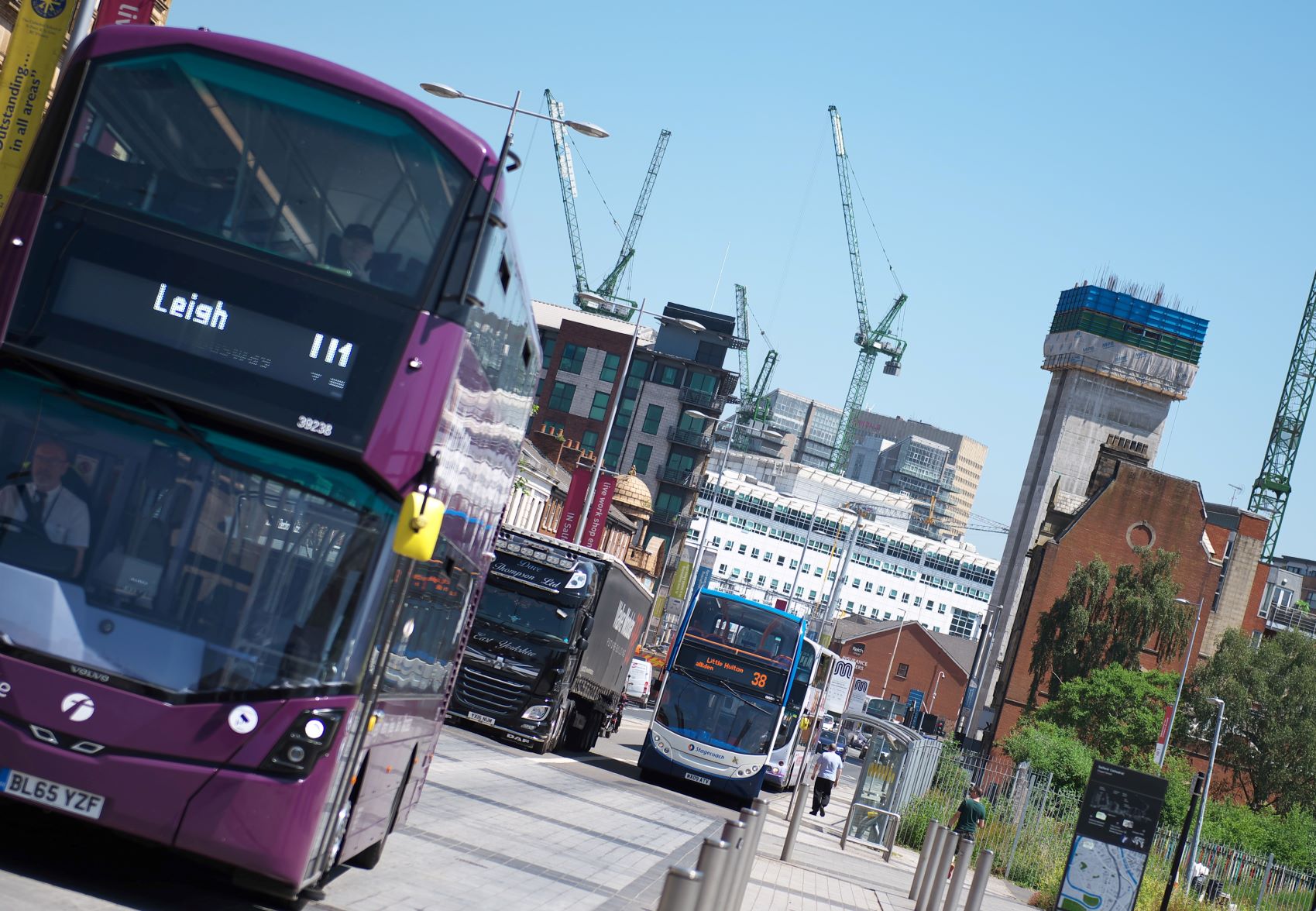Lou Cordwell, Chair of the Greater Manchester Local Enterprise Partnership (GM LEP), says improving transport, including our bus network, will be crucial if the city-region is to support sustainable economic growth.
The third national lockdown has been, and continues to be, a hammer blow for businesses and people in Greater Manchester, but as the Government’s vaccination roll-out gathers pace we need to start turning our attention to the future as well.
In November, we launched a bold new vision for a greener and fairer Greater Manchester, ‘Building a Greater Manchester, Making a Greater Britain’, which provides a blueprint for remodelling the city-region’s economy. One of the key pillars to support this work is creating places where people want to live, work and invest.
A golden thread that links these three things together is connectivity. Back in 2019, the Mayor launched Our Network, Greater Manchester’s vision for an integrated and sustainable transport network that supports the city-region to be one of the best places to grow up, get on and grow old.
Making Our Network a reality will be vital if we are to support economic and population growth, especially as sustainable growth will both need, and be driven by, improved connectivity. This is true on both a local and pan-northern level, with Greater Manchester playing a crucial role in national efforts to level up and rebalance the UK economy.
To deliver the 2040 Transport Strategy, the aim is for 50% of all journeys in the city-region to be made by foot, bike or public transport – including buses – by 2040. That’s a million more sustainable journeys every day. For this to be realised, sustainable transport must become the first choice because it is easier, cheaper, or faster than non-sustainable modes. Bus travel will have a key role to play in achieving this ambition.
Pre-Covid, bus use accounted for 75% of public journeys – around 190 million journeys – and during the pandemic buses have remained vital to connecting communities with jobs, essential services and leisure, particularly for the one third of Greater Manchester households without access to a car.
However, even before the pandemic, the bus market in our city-region was in decline. Without intervention, the Greater Manchester Combined Authority (GMCA) expects that decline to continue.
Greater Manchester’s bus market is currently deregulated, meaning routes, services and fares are set by operators. There is limited competition in deregulated bus markets and in Greater Manchester this has meant that benefits such as value for money and innovation have not been seen. There is no guiding mind to plan our transport network overall based on our social and economic needs.
In the current market, the public sector spends a lot on bus services in Greater Manchester. For example, over £250m of capital expenditure has been spent on infrastructure projects since 2014 such as bus priority measures, stations and interchanges, along with over £100m from local and central government funding each year covering subsidised services, concessionary fares and fuel duty rebates.
With the disruption of Covid-19, the bus sector has been further supported with extra emergency funding to operators from government totalling £33.6m between March and September 2020. It is also likely that additional public funding will need to continue for some time.
The GMCA is seeking better outcomes for its investment. Last year the GMCA asked what should be done with our buses as part of the Doing Buses Differently consultation. Over 8,500 people responded, with four out of five supporting the proposed franchising scheme.
Under franchising proposals, the GMCA would co-ordinate and invest in the bus network based on passenger’s needs, with bus operators contracted to run the services. The GMCA would be responsible for the bus network which means it would also have more of the financial responsibility and the risks. However, the economic assessment of the Proposed Franchising Scheme concludes that it would provide the best value for money by offering a ‘high’ benefit to cost ratio and the greatest net economic value.
Covid-19 has caused a lot of uncertainty over how people will travel in future. Therefore, an additional consultation is underway to gather views before Friday 29 January on the impact of Covid-19 on the bus market and Greater Manchester’s proposals for reform. It’s important that the voice of business is heard in this consultation.
Greater Manchester forms one of the world’s most renowned areas for hospitality, culture, sport and arts and is the North’s leading business, retail and education centre – it requires a transport system befitting a leading city-region.
Beyond the pandemic, we’re determined to deliver on our Economic Vision and to seize the opportunity to remodel our economy. Improving transport for all in the city-region is a fundamental part of that. Our ambitions for green growth need to be supported by an integrated transport system and buses are a critical driver for connecting Greater Manchester’s people and places.

